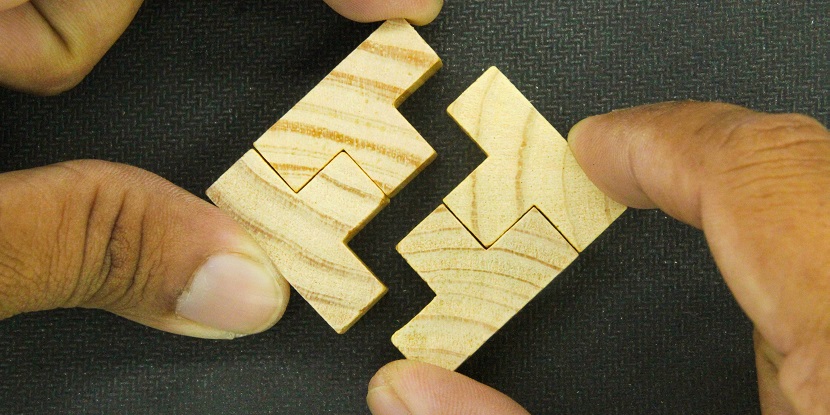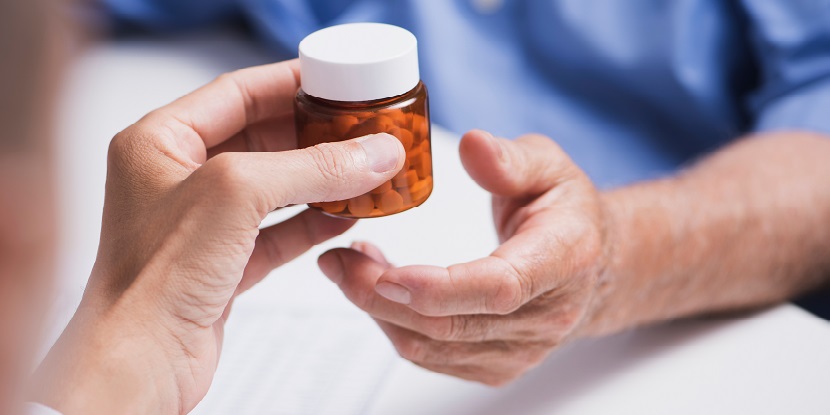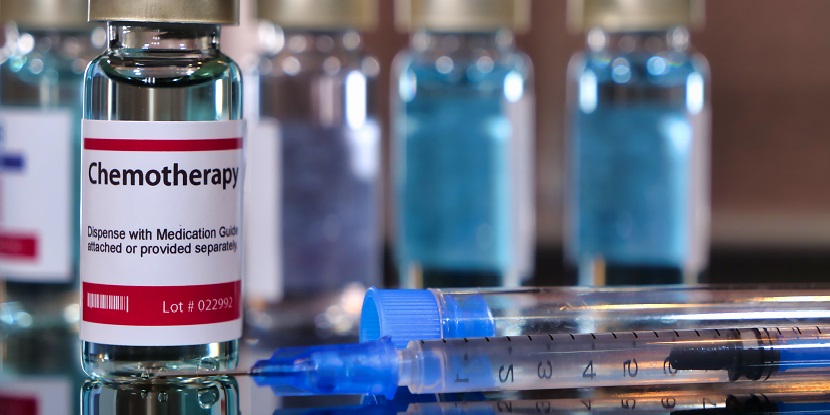JUVE Patent has summarised the five most important decisions in national proceedings across all French instances from the past year, with interesting judgments especially prevalent in the fields of supplementary protection certificates and pharmaceuticals integral for the treatment of common ailments. Indeed, many French judgments are having a wider impact; in some instances, the country’s Supreme Court as well as the CJEU are defining future case law.
18 March 2024 by Konstanze Richter

During 2023, the French patent courts were particularly occupied with important pharmaceutical cases, especially involving SPCs. In particular, the French Supreme Court issued landmark decisions on the interpretation of the European SPC regulation. Here, the most important judgments by far were those which came as a result of the Dana Farber Cancer Institute and Ono Pharmaceutical disputes against the French Patent and Trademark Office (INPI).
By contrast, patent disputes relating to mobile communications or digital technology patents played a lesser role, with the market paying most attention to the Court of Appeal decision in Assia vs. Nokia and Orange over DSL technology.
In addition, at the start of 2024, the curtain came down on the final act of the patent dispute between Philips, TCL and ETSI. While the original dispute between the Dutch patent holder and the Chinese mobile phone manufacturer has long since settled, standardisation body ETSI is left with the costs of the proceedings following the latest ruling by the Court of Appeal.
However, this week the market is eagerly awaiting the oral hearing at the Paris Court of Appeal in the dispute between Intellectual Ventures and numerous mobile phone providers. This is one of the largest telecommunications disputes in the country.
By applying the CJEU’s Royalty Pharma decision, the highest French court leads the way to future SPC rulings.

The French Supreme Court, on the banks of the river Seine in Paris. ©Givaga/ADOBE STOCK
In several landmark decisions regarding SPCs, the Supreme Court in Paris (Cour de Cassation) has paved the way to interpretation of Article 3a of Regulation 469/2009. At the centre of all the disputes are patents for monoclonal antibodies, for which the INPI rejected applications for SPCs on the grounds that they did not meet the requirements of said regulation.
The Supreme Court has now reviewed these decisions in view of the CJEU judgement in the Royalty Pharma case against the German Patent and Trademark Office (DPMA) (C-650/17).
In particular, the most recent decision in the dispute between Dana Farber Cancer Institute and the INPI stands out. It is characterised by the fact that the Court of Appeal had already overturned the decision of the INPI. This is a very rare occurrence in previous disputes between SPC applicants and the INPI.
On the basis of its EP 1 210 424, Dana Farber applied for an SPC for avelumab in 2017, which the INPI denied. However, the Court of Appeal overturned the decision of the INPI in May 2022. In his complaint against this decision, the INPI director general pointed out that “a product, where it meets a functional definition contained in the claims of a basic patent, cannot be considered to be protected by that basic patent, within the meaning of Article 3a) of EC Regulation No 469/2009”.
However, the CJEU interprets the regulation differently. According to the Royalty Pharma decision, a basic patent protects a product if it corresponds to a general functional definition used by one of the claims of the basic patent and necessarily comes within the scope of the invention covered by that patent.
But that a person skilled in the art can specifically identify this remains a prerequisite. Furthermore, the CJEU decided that a basic patent does not protect a product if it was developed after the filing date of the application for the basic patent, following an independent inventive step.
In January 2024, the Supreme Court, applying the criteria laid down by the CJEU, dismissed the INPI’s appeal. According to the judges, EP 424 did indeed protect the human monoclonal antibody avelumab. Even though the basic patent does not expressly mention it, the court found that a person skilled in the art could specifically identify this through known routine tests (case ID: 22-18.374). Furthermore, the company had not developed the antibody after the filing date of the patent application, following an autonomous inventive step.
The court also rejected the INPI’s request to refer questions to the CJEU concerning the allowability of SPCs in the circumstances presented.
Thus, the Supreme Court confirmed the case law that it had first set out in its judgment on Ono Pharmaceutical in the dispute over nivolumab and pembrolizumab in February 2023. The INPI had rejected both applications, a decision that was upheld in the appeal.
In February 2023, the highest-instance court then overturned this Court of Appeal decision from 2021. In doing so, for the first time it applied the ruling of the CJEU in Royalty Pharma (case IDs: 21-13.664 and 21-13.663).
However, another Supreme Court judgment from the same day shows that the CJEU decision is not “one-size fits all”. In the appeal by Wyeth and the General Hospital Corporation concerning osimertinib, the judges dismissed the appeal of the US plaintiffs (case ID: 21-17.773), considering that an SPC could not protect basic patent EP 1 848 414.
According to the ruling, even if osimertinib corresponds to the general functional definition given by the basic patent, it was unknown to the person skilled in the art at the relevant time. Therefore, it could not be identified based on the state of the art at the time of filing.
Dana Farber retained the Paris team of Simmons & Simmons partner Francois Jonquères, which had already worked for the client for the Court of Appeal proceedings. Jonquères called on lawyer Martin Le Guerer as specialists for proceedings before the Supreme Court. His firm Thomas-Raquin Le Guerer, Bouniol-Brochier had already advised Ono Pharmaceutical and Wyeth in the parallel cases.
Patent attorney Claire Bernstein of Gevers & Ores assisted in technical matters. Christian Helbig from Swiss patent attorney firm Wagner & Helbig, as well as DeAnn Smith and Peter Sullivan from US firm Foley Hoag, also supported the team. The latter is also advising Dana Farber regarding obtaining SPCs.
In the parallel proceedings, Ono Pharmaceutical relied on a team led by the partners Emmanuel Larere and Raphaëlle Dequiré-Portier from Gide Loyrette Nouel.
The INPI director general relied on François Gilbert of Le Prado & Gilbert for the Supreme Court proceedings against Dana Farber. In the previous cases against Ono Pharmaceutical and Wyeth, lawyers from the law firm Marlange de La Burgade, which also specialises in Supreme Court cases, represented the INPI.
For Dana-Farber Cancer Institute
Simmons & Simmons (Paris): François Jonquères (partner); associate: Mickaël da Costa
Thomas-Raquin Le Guerer, Bouniol-Brochier (Paris): Martin Le Guerer (lawyer admitted to the French Supreme Court)
Gevers & Orès (Paris): Claire Bernstein (patent attorney)
Wahe Patent (Nyon): Christian Helbig (patent attorney)
Foley Hoag (Boston/New York): DeAnn Smith, Peter Sullivan (both partners)
For INPI
Le Prado & Gilbert (Paris): François Gilbert (lawyer admitted to the French Supreme Court)
Supreme Court Paris, Chamber of commerce, finance and economy
Vincent Vigneau (president), Melanie Bessaud (judge rapporteur) Sophie Darbois, Sylvaine Poillot Peruzzetto, Valérie Michel-Amsellem, Clotilde Bellino, Laure Comte, Francois Le Masne de Chermont, Nathalie Sabotier, Nicolas Regis (judges), Anne-Sophie Texier (advocate general), Nadia Labat (clerk of the court)
In the dispute over Janumet, a French court has once again changed previous interpretations of SPC regulation according to a CJEU ruling.

Can an SPC be granted for a combination of active ingredients? ©Fauzi
In another high-profile SPC dispute, the focus was on the question of whether an office can grant an SPC for a combination of active ingredients, if an SPC already exists for one of the individual active ingredients in the combination. This question is at the crux of several disputes, some of which are still pending at the CJEU.
The MSD and Viatris dispute concerns an SPC covering the combination of sitagliptin and metformin. The drugs form the basis of MSD’s drug Janumet, which doctors use to treat diabetes mellitus. After the original patent EP 1 412 357, which covers the active ingredient sitagliptin, as well as the SPC based on it expired in September 2022, Mylan planned to launch a generic version in France.
However, another SPC for the combination sitagliptin and metformin was still valid until 8 April 2023. Based on this, MSD applied for a preliminary injunction against Mylan to prevent the company from entering the market. The generic company claimed the SPC was invalid on the grounds of Article 3(c) of Regulation 469/2009. For validity under Article 3(a), Viatris argued that the company must apply the two-part test set out in the CJEU’s Teva/Gilead decision (C-121/17).
The first-instance judges, however, found the patent and SPC valid and most likely infringed, therefore granting a preliminary injunction in 2022 (case ID: 22/55128). In January 2024, the Court of Appeal upheld this decision (case ID: 22/16673). As such, it is a rare case in which the French second-instance court upholds a first-instance injunction. It was also a departure from the court’s previous rulings in similar cases.
For example, in 2020 in MSD vs. Teva over the cholesterol-lowering drug Inegy, the Court of Appeal invalidated the SPC for the combination of ezitimib and simvastatin. In doing so, the court overturned a first-instance ruling. Similar decisions followed in the dispute between MSD and Biogaran over the same SPC.
Find out more on the case and its advisors here.
In the pan-European battle between Bristol-Myers Squibb and Teva, France takes a different course.

Debates on patents for blood thinner apixaban are currently raging in Europe’s patent courts. ©nito
Blood thinner Eliquis is one of Bristol-Myers Squibb’s most important blockbuster products. For two years, a dispute has raged throughout Europe over the market entry of generic products containing the active ingredient apixaban.
In France, the UK, Ireland and the Netherlands, Teva claimed invalidity of Bristol- Meyers Squibb’s EP 14 27 415 and associated SPC. The patent covers “lactam-containing compounds and derivates thereof as factor Xa inhibitors”. During proceedings, the question of plausibility played a key role.
Teva argued that the patent does not make plausible that apixaban has useful factor Xa inhibitory activity, or would be useful in therapeutic situations. Apixaban’s success depends on the use of an Xa inhibitor. Thus, the court closely examined plausibility to determine invalidity following the European Patent Office’s decision in G 2/21.
In June 2023, the Judicial Court of Paris handed down a decision, where it rejected Teva Santé’s request to invalidate EP 415 (case ID: 21/112727).
As so often the case with pan-European patent battles, the different national courts came to different conclusions, While the UK and Irish High Courts invalidated the respective national parts of EP 415, the Dutch judges of the Court of Appeal in The Hague found the apixaban patent and SPC to be infringed by the products of generic drug manufacturers.
Find out more on the case and its advisors here.
French courts rejected a preliminary injunction for a patent that was not yet granted at the time of the PI application.

Fingolimod is used to treat certain types of multiple sclerosis. ©New Africa
In the high-profile pan-European dispute over fingolimod, whether a preliminary injunction can be obtained for a patent that the EPO has not officially granted is the main question. In France, after the first instance decision, the Court of Appeal also rejected Novartis’ application in the dispute against Biogaran (case ID: 22/11165).
Novartis is fighting in multiple countries against various generic drug manufacturers over EP 2 959 894. This second medical use patent pertains to a 0.5mg per day dosage of active ingredient fingolimod. This forms the basis of Novartis’ drug Gilenya, which treats relapsing-remitting multiple sclerosis (RRMS). While extended market exclusivity for Gilenya ended on 22 March 2022, the dispute is based on the EPO not yet formally granting the dosage patent EP 894.
In France, the innovator company filed for preliminary injunctions against four generic companies. Then, in August 2022, the first-instance Judicial Court dismissed application for a PI first against Zentiva and later against Biogaran, Teva and Viatris. In March 2023, the Court of Appeal confirmed this decision in the case of Biogaran. The second-instance judges stated that, according to the French Intellectual Property Code, a patent not yet granted cannot be the base for a request for a preliminary injunction.
The battle in France continues, with several proceedings on the merits now pending. Meanwhile the EPO granted the patent in September 2022. Shortly afterwards, numerous generics companies filed oppositions, including Biogaran, Teva, Zentiva and Viatris.
All parties relied on their trusted advisors. In addition to the Allen & Overy team, Matthieu Boccon-Gibod of Lexavoue acted for Novartis as a specialised lawyer for appeal proceedings. He is regularly involved in patent litigation at the Court of Appeal.
Biogaran also relied on its go-to advisors from the mixed firm Casalonga. It was assisted by Sylvie Kong Tong, who specialises in appeal procedures.
In the other fingolimod proceedings IP boutique Schertenleib represents regular client Viatris. August Debouzy is representing Teva and Pinsent Masons is advising Zentiva.
For Novartis
Allen & Overy (Paris): Laetitia Bénard; Charles Tuffreau (partners); associates: Marion Gizzi, Manon Perret
Lexavoue (Paris/Versailles): Matthieu Boccon-Gibod (lawyer specialised in appeal procedures)
For Biogaran
Casalonga (Paris): Marianne Gabriel, Arnaud Casalonga, Jean-Baptiste Lecoeur
Dominique Olivier – Sylvie Kong-Thong (Paris): Sylvie Kong Thong (lawyer specialised in appeal procedures)
Court of Appeal, Paris, Section 5, 1st chamber
Isabelle Douillet (presiding judge), Françoise Barutel, Deborah Bohee
Find out more about the history of the case and its advisors here and here.
Being neither a patent holder nor a licensee, Lilly France is not entitled to damages.

Lilly France demanded provisional damages from Viatris over pemetrexed. ©Bernard Chantal
Eli Lilly has battled with various generic manufacturers over pemetrexed for years. After French courts awarded the pharma company damages in some cases, the Judicial Court Paris rejected similar claims of the innovator against Viatris.
The patent in suit, Eli Lilly’s EP 1 313 508, forms the basis of the blockbuster chemotherapy drug Alimta. It expired in mid-2021. However, litigation over damages is still ongoing.
In the current case, the patent holder and its French daughter company Lilly France filed an infringement action against Viatris. Furthermore, Lilly France accused the defendant of committing an “act of unfair competition” with the infringement of EP 508. It demanded provisional damages of €2.5 million and the reimbursement of costs.
Although the court found the French part of the patent valid and infringed, it rejected Lilly France’s claims for damages. The judges referred to the French Intellectual Property Code, which states that only the patent holder or a licensee may file an infringement suit. Therefore Lilly France could only claim damages based on the allegation of unfair competition. However, in the opinion of the court, the claimant was unable to provide any credible evidence for this allegation and it therefore dismissed the action.